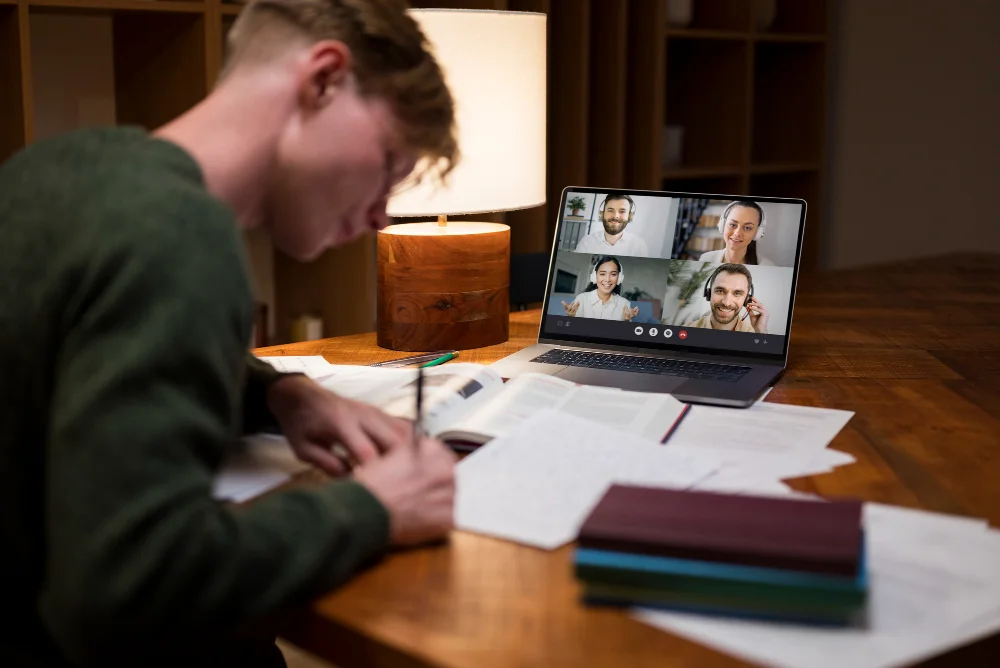The ranking of candidates will be based on their performance in the written and interview/personality test portions of the Civil Services (Main) Examination. So, performing well in both the UPSC CSE written test and the interview is crucial. The main goal of the interview is to evaluate the candidate’s potential and suitability for civil service.
The candidates’ broad knowledge has already been evaluated in their written exams. Thus, the questions asked in UPSC exam interview aims to demonstrate the candidate’s mental capabilities. There will be open-ended inquiries about topics of general interest to the candidate.
The candidate might categorize his prepared topics into four types to perform well in the UPSC interview. These are behavioral, situational, profile-related, and current events questions.
Questions Relating to Profiles
Regarding a candidate’s performance and mental stability, the UPSC panel frequently asks questions based on the candidate’s profile. Questions about a candidate’s educational background, employment history, reasons for choosing the civil service, optional service preferences, district and state of residence, and other topics may be asked. The candidate must therefore be well-prepared to respond to all inquiries regarding their profile.
Applicants must be interested in events happening around them both inside and outside of their own State or Country, as well as their specialized academic study areas.
Current Affairs
A UPSC CSE candidate must always be current on the most important national and worldwide happenings. There may be questions about various current social, economic, and political themes during the UPSC interview. The applicant ought to have a proper perspective on the subject. The candidate is free to express an opinion, but arguments must support this opinion.
Inquiries Based on the Situation
The UPSC interview panel presents a scenario and asks the applicant how they would react. These inquiries are made to determine a person’s credibility as a bureaucrat or their level of effectiveness in handling real-world issues.
Behavioral Questions
You can show your problem-solving capabilities and discuss your skills, personality, and approach to issues by answering behavioral questions. Your responses should emphasize personal development, self-reliance, and a desire to assist others.
Thus, it is suggested that candidates go to mock interviews to evaluate their performance and steer clear of some common blunders. Create a list of your skills and flaws and try to steer clear of them throughout the interview. The idea behind a UPSC CSE interview is to physically position you before a group of specialists to evaluate your true, authentic self. Hence, show up to the interview fully assured and cheerful.
Tips to Crack the IAS Interview
Before facing the panel, a candidate needs to consider a few qualities in themselves:
- The best time to start preparing is right after the UPSC Mains, not once the results are out. This is due to various factors, including the fact that constant planning prevents breaks in the flow and allows you to keep up with current events as they happen. Second, an applicant may be offered an interview slot immediately, adding needless tension. Additionally, since the interviews are only held at the UPSC Bhavan – Dholpur House in New Delhi, out-of-town applicants must make travel and lodging arrangements. Therefore, even if one has delayed a little, be calm and continue reading.
- With a smile on your face, enter the space. Begin by greeting the panel’s chair and then the other participants. Don’t sit down.
- The panel often assembles around a round table, and the candidate is expected to take a seat directly across from the panel chair. Even though it may occasionally be uncomfortably close to the panelists on each side of the candidate, please try to look them in the eye when responding to questions.
- The questions are first posed by the panel’s chair, after which the other participants respond. Be aware of the panel’s demeanor; they will nearly always be courteous and learned. A candidate should emulate the panel’s demeanor and act courteously and firmly.
- Generic inquiries like “Why a career in civil services?” may be asked. Prepare a proper, concise response but be aware of follow-up inquiries. (For instance, if a doctor or engineer candidate says they want to help the community, the panel will query if becoming a doctor or engineer is not benefiting the community.)
- Only the candidate’s DAF is available to the panelists. Thus it is critical to be prepared with all questions and possible replies that might be asked.
Conclusion!
The third and final round of the civil services examination is the UPSC Personality Test. formally known as the IAS interview. At no cost should it be treated lightly. The previous question paper of the UPSC cse exam is the best way to learn better. Two sessions every day, over a month, are allocated to the interviews. With their call letter, which they must also bring with them on the day of the interview, candidates are informed of the day and time.
FAQ
What kinds of inquiries are asked during the IAS interview?
IAS interview questions can include a wide variety of topics, including Please briefly describe your hobbies. Provide reasons for selecting IAS as your top preference, etc.
Is the UPSC interview challenging?
One of the most difficult steps to pass is the UPSC Interview. It calls for the application of mental clarity. A candidate can only advance if they have the capacity and ability to learn new things. Take the UPSC current affairs test to judge your level of understanding of current affairs.


















